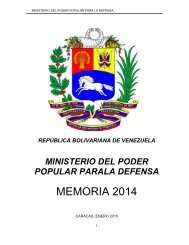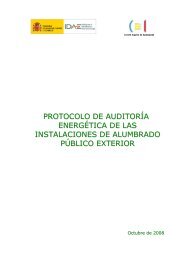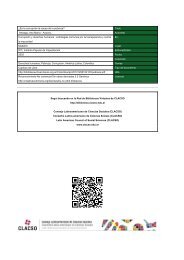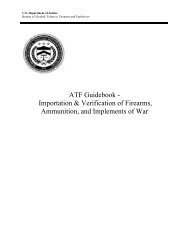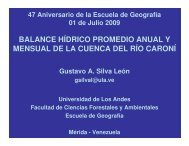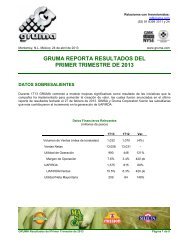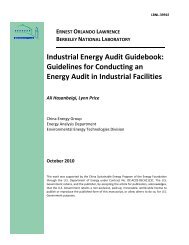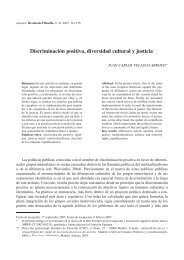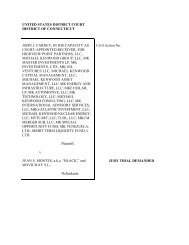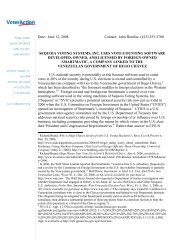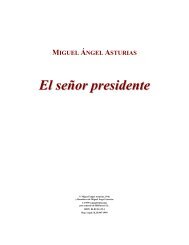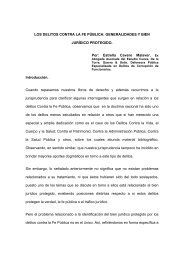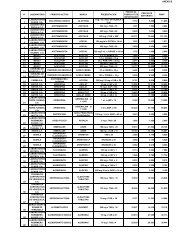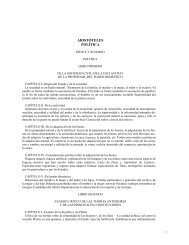broschuere ee zahlen en bf
broschuere ee zahlen en bf
broschuere ee zahlen en bf
Create successful ePaper yourself
Turn your PDF publications into a flip-book with our unique Google optimized e-Paper software.
The examples of wind <strong>en</strong>ergy and photovoltaic in particular show that the success of expansion<br />
in the electricity sector varies considerably betw<strong>ee</strong>n the individual EU states (s<strong>ee</strong> also<br />
page 66 “Expansion of electricity g<strong>en</strong>eration...”). This is due above all to the individual framework<br />
conditions in terms of <strong>en</strong>ergy policy. The f<strong>ee</strong>d-in system is curr<strong>en</strong>tly used by over 20 EU<br />
Member States, either as their sole promotion instrum<strong>en</strong>t or in combination with other measures.<br />
On a European comparison this instrum<strong>en</strong>t, especially the German R<strong>en</strong>ewable Energy<br />
Sources Act (EEG), has made a very successful contribution to the expansion of electricity<br />
from r<strong>en</strong>ewable sources. For example, f<strong>ee</strong>d-in systems were responsible for 86 % of the capacity<br />
installed in the EU up to the <strong>en</strong>d of 2009 in the onshore wind <strong>en</strong>ergy sector and nearly<br />
100 % of installed capacity in the photovoltaic sector.<br />
The Federal Environm<strong>en</strong>t Ministry supports a project which operates an Internet database<br />
on “Legal sources on r<strong>en</strong>ewable <strong>en</strong>ergy g<strong>en</strong>eration”, which offers fr<strong>ee</strong> access under<br />
www.res-legal.de (“RES LEGAL”). Here it is possible to search for legal information about the<br />
promotion of electricity from r<strong>en</strong>ewable <strong>en</strong>ergy sources in the 27 Member States of the EU,<br />
and also on grid access. Technology-specific regulations are also explicitly listed.<br />
The International F<strong>ee</strong>d-In Cooperation (IFIC)<br />
At the International Confer<strong>en</strong>ce for R<strong>en</strong>ewable Energies, held in Bonn in 2004, Spain and<br />
Germany decided to exchange information on their experi<strong>en</strong>ce with f<strong>ee</strong>d-in systems for r<strong>en</strong>ewables-based<br />
electricity and to int<strong>en</strong>sify their cooperation (International F<strong>ee</strong>d-In Cooperation).<br />
This cooperation was placed on a firm footing with the signing of a Joint Declaration<br />
in October 2005. In January 2007 Slov<strong>en</strong>ia signed the Joint Declaration and joined the IFIC.<br />
The aims of the Cooperation are to promote the exchange of experi<strong>en</strong>ce concerning f<strong>ee</strong>d-in<br />
systems, optimise such systems, support other countries in their <strong>en</strong>deavours to improve and<br />
develop f<strong>ee</strong>d-in systems, and contribute knowledge to international forums, in particular to<br />
the policy debate in the European Union.<br />
At a global level, at least 61 countries and a further 26 states/provinces/regions had introduced<br />
f<strong>ee</strong>d-in systems for r<strong>en</strong>ewables-based electricity by the beginning of 2011 [113].<br />
Further information is available on the Internet from www.f<strong>ee</strong>d-in-cooperation.org.<br />
EU: PROMOTION OF RENEWABLES-BASED ELECTRICITY<br />
R<strong>en</strong>ewable Energy Sources in Figures<br />
81



